Asian A.V. Club newsletter #28: Sean Wang
Director Sean Wang talks to us about the moment he realized that leaning into personal stories & experiences was his superpower and how that led to the Sundance Film Festival winning debut Dìdi.
Something wonderful happened this year at the Sundance Film Festival. A personal story of a 13-year old Asian-American teenage skater boy getting his coming of age summer, charmed audiences and critics alike into giving it the U.S. Dramatic Audience Award AND U.S. Dramatic Special Jury Award for Best Ensemble Cast, beating out high-profile films in the process.
With his debut film Dìdi (弟弟), director Sean Wang brings a unique empathetic voice that not only tells a personal story but one that resonates on a universal level. Oh, did we mention that same week, Wang’s short doc Nǎi Nai & Wài Pó (奶奶跟外婆) was also nominated for Best Documentary Short Film at the Academy Awards? Needless to say, we are big fans and managed to talk to Sean backstage at the New York Asian Film Festival before his big NY Premiere. Oh… and sweet potato fries may have been shared in the process.
Asian A.V. Club: I read that your origins as a filmmaker began when you started making skateboarding videos. What was it about this community and world that made you want to pick up a camera and document your friends and put it on YouTube?
Sean Wang: I think that's just the culture of skating. There's such a culture of documenting yourself skating and your friends skating. There wouldn't be a culture of skateboarding without the photographers, videographers and the filmmakers. And so, through skating, I just got interested in cameras and photography. That sort of just naturally became like, ‘oh, I have a camera, I'll film my friends.’ People were filming things with their phones at that point and just uploading to YouTube. But I actually was like, ‘I kind of want to start editing things together and trying to make stuff’.
A lot of people don't want to become filmmakers. They just record their friends because that's what you do in skating. You capture tricks, you cut it together, and you make a little montage. That vocabulary of cameras and filmmaking and editing was just secondhand for a long time, but it wasn't anything bigger than that for a long time.
Asian A.V. Club: These days everything is tabulated by clicks and reach, did any of your videos gain traction in the early days of YouTube?
Sean Wang: Oh, they were low. (laughs) Like they were 100. I did have one video. There was a kid that got in a fight at a skate park, and I filmed it on my phone and uploaded it to my YouTube channel with the title, KID THAT GOT IN A FIGHT AT A SKATE PARK. And it got like 50,000 views and it's like the most viewed video on my channel. Then it got deleted because it broke guidelines. All my random skate videos that only had like 100 to 200 views. And here’s a random video of a kid getting in a fight, and it had like 50,000 views. When it got removed, I was like, damn it! That's my best video! (laughs)
Asian A.V. Club: Is it true that when you saw Spike Jonze’s movies that it inspired you to want to do more than the skater videos you were posting?
Sean Wang: It’s true. I was already a fan of Spike, but I knew him as a skater. He was the guy who made skate videos and Jackass and he ran a skate company that was like, the most respected and coolest skate company of that time. So, I kind of knew him as that this like, DIY skate dude. And when Where the Wild Things Are, came out, I just remember being like, ‘Wait, Spike’s a director?!’ And it just was this thing where my brain was a little bit, << does not compute>>. (laughs) I mean, that’s a Warner Brothers giant 100-million-dollar movie and I knew him from his no budget skate videos. I was like, ‘Wait, you can do both?!’
Then I kind of went down the rabbit hole. And I was like, what are all these music videos and commercials? Then I saw, Being John Malkovich and Adaptation and it made me realize I was putting myself in a box without knowing I put myself in a box. After that, I thought, maybe I can do other stuff. So, I started trying to make like short docs and music videos, but I still didn't have a vocabulary to call myself a filmmaker. It was more like, he’s making other stuff, I’ll make other stuff. I don't think it was until my first couple years of college where I really was like, ‘Okay, I think this is filmmaking. I think this is what I want to do.’
Asian A.V. Club: Did you go the film school route?
Sean Wang: I did go to film school. I went to community college with the intention to transfer to a film school. But I didn’t know anyone in the industry, and it felt like such a faraway world, so I Google’d top film schools and was like, I guess I need to go to these three if I wanted to be a director. (laughs).
Those first few years, I took screenwriting classes and also general education courses, but I still didn’t know if I could make features because it felt like such a big thing. But that first year I saw Fruitvale Station and Short Term 12, and those films were like, really, really big for me, because they were small films. In terms of the raw emotion they communicated, they felt like huge movies and made me discover indie filmmaking. I was like, ‘What is this avenue? Maybe there's something here because that's more my speed.’
Asian A.V. Club: We always like to ask about the talk with the family about pursuing a career in this industry, what was yours like?
Sean Wang: They were always surprisingly supportive. I think part of going to community college with the hopes of transferring was that if I didn't show them that I took it seriously, it would be it's a non-starter. So, it was like, ‘I'm gonna take this incredibly, incredibly, incredibly serious’, and I did. I was willing to do anything that will pay me too. I was shooting my friend's sister's weddings, so I started a little wedding film business. And I was shooting local commercials for random businesses. My parents saw my wedding videos and they're like, ‘okay, he's making money doing this, he's taking it seriously.’ And also, if I didn't have the grades, I wouldn't be able to transfer. So, over the course of two years, they were just kind of like, this is not up to us.
For better or worse, I just entrenched myself, and had a big chip on my shoulder at that time. I had something to prove. I look back at that time in my life and I'm like, man, I really would do anything. I will film, edit anything as long as you’ll pay me. I'll do it. I mean, I even shot a friend’s relative’s funeral. Actually, I didn’t ask for money for that one. (laughs) I really look back at that period as a very naïve innocent time for me.
Asian A.V. Club: You did make it to University of Southern California for film school, but I saw that you also took part in a few film labs afterwards. Can you talk about the perks of going to someplace like a lab and how it was different from your film education.
Sean Wang: As a kid who didn't know anything about this industry, my goal was to always go to film school. But once I got there, I realized that it was such a one-track mindset of how to be a filmmaker. It was a lot of what kind of films you had to make, in the right way. And that didn't really gel with me in the way that I like to make stuff. This industry is so insular and so weird to navigate. And people just expect you to know the answer to everything, when in truth, it’s like, ‘Dude, I’ve never done this before.’ (laughs) You don’t know how to do anything until you do it.
But going to a lab helped me so much because you discover community and mentorship. It’s nice to talk to people who’ve done it, and be like, what pitfalls did you go through? What did you learn? What were the pros and cons. I think it's nice to you know that every path is different. And that whatever path you end up taking, it becomes your own unique experience because there's no linear path. Oftentimes your craft is made in a way that feels unique and hopefully bespoke to you and your sensibilities. But, when you don't know anyone who's done it, you're just kind of like, ‘Fuck, I'm just throwing shit against the wall and seeing what happens’, which sometimes works, but it's kind of a hard way to live your life.
Asian A.V. Club: When did you start mining personal stories to represent the films you wanted to make?
Sean Wang: I think the turning point was in 2017. After transferring to film school in 2014, in a weird way, it kind of crippled me a little bit. Because all of a sudden it was like, ‘Oh, you want a career? This is how you make stuff that is good and seen, but do you even know who you are?’ So, you throw out personal expression, but you're making stuff just for it to be good. I went down that path for a few years and it got me nowhere.
Then in 2017, I made a short film (3,000 Miles) that was not what film school would ever encourage you to make. It was a documentary short with no subject. Instead, it's a five-minute montage of my first year living in New York City. I chronicled my mom's voicemails that she left me over the course of a year. And I remember just making a sweet film that was very sincere and an earnest love letter to my mom and living in New York City. But it was made out of frustration, I was working at an ad agency and everything I was pitching was getting killed. All the ideas that I was excited about couldn’t get out the door and I just couldn't get anything made.
So, I just kind of turned my attention to this tiny little short, and it was the first thing where I was like, I don't care if anyone sees this. It's just mine and nobody can take away from me. If you don't like it, that's fine. The ethos I had for it was very pure in that sense and I didn't submit it to any festivals. I finished it and three hours later, I uploaded it to Vimeo and put it on my Facebook, saying ‘Hey guys, like I made this thing. Check it out. I hope you enjoy it.’ And it like went viral. (laughs) It was just the first thing I made that opened any door for me.
Asian A.V. Club: You learned how to be creatively selfish.
Sean Wang: Exactly. In a way, being selfish forced me to ask what do I want, separate from what the industry wants, or what I think I need to do to get into Sundance, type of thing. This film was made with no expectations. And yet it did all the things that I wanted all my other films to do, which was to be seen, and have production companies take me seriously. I realized the things that are unique to you and your perspective, was my superpower.
So, I think from that onwards, I tried to challenge myself to always ignore the things I think I need to do, and actually be more selfish and ask what I have at my disposal that is unique to me as a filmmaker. So, I looked at all the things around me and decided to not look outward, but inward.
Asian A.V. Club: Was there a moment when you were sitting around the dinner table and looked at your Grandmother (外婆)and Grandma (奶奶)and was like, I think I have the subjects of my next film?
Sean Wang: We've always had a very fun, silly, mischievous relationship. In 2018, I made a “Christmas card”, and it was a skit where we shot it in two hours. And basically, they try to feed me blueberries. I say no, they slap me, tie me up, spank me, chug whiskey, light shit on fire, and then it ends with them burying me in the backyard. And it says, Merry Christmas.
I emailed it to a bunch of people who were like, what is this? And it was really kind the most fun I've ever had making anything. Sam (A. Davis), who is one of my best friends, was just like, ‘Dude, you got to do something else with them. This is just scratching the surface because there's something so unique and special here about their relationship and your relationship to them.’ I just wasn’t sure what it was.
Then in 2021, I moved home to the Bay Area, and I was living with them for close to a year. And that just happened to coincide with a lot of anti-Asian hate crimes. Seeing that in the news and having that juxtaposition of extreme anger yet I was feeling so much joy from living with them, I was like, I just want to make something that can capture what I see every day that can challenge what the news is saying and really try to humanize them in a way. Helping them feel seen in a way that I felt like the world was overlooking or victimizing them in a big way. And so that's kind of how Nǎi Nai & Wài Pó (奶奶跟外婆)happened.
Asian A.V. Club: Were you developing Dìdi (弟弟) during that period too?
Sean Wang: Actually, it was after 3000 Miles. I wanted to make something that was a personal story that I could write and clearly direct as a first-time filmmaker, where you’re not going to find anyone else that could tell this specific story. Like, I'm clearly the right director for this. (laughs) I was also trying to write something that was small and local that could play to my strengths and utilize the resources that I had, one of which is my hometown. I shot something there a couple years before, and the whole city was just like, ‘Oh my god, it's amazing! How can we help?’ It planted the seed in my head where there's a community here that is so excited about the arts and moviemaking in a way that is not felt when you shoot in LA because it's such an industry town. That industry doesn't exist in Fremont.
So, it really was trying to nail that triangle of keeping it small but resourceful, personal, and intimate but unique, and making it in a way that felt familial and communal by bringing in my family and my hometown friends into it. Can we do all three? And if we do, I think that it’s hopefully a recipe for success for a tiny little indie film to hopefully find legs. And I think it did.
Asian A.V. Club: But you’re making this small film and you decide to bring in Joan Chen (The Last Emperor, Twin Peaks) who’s found great success back home as an actor/director herself these days. She’s kind of an icon.
Sean Wang: She's obviously a legend. I think the thing that planted the seed in my head with her specifically was I saw Tigertail (dir: Alan Yang) in 2020, and she has a scene stealing moment where her character communicates so much longing and regret and time lost and love in one dinner scene. She just has a very tender presence.
I wanted to try to capture a version of motherhood that was a little bit soft spoken and tender and sensitive, but also funny. Kind of like my mom and other immigrant moms that I knew growing up. And seeing that scene I was like, interesting… maybe she would be a good fit for this.
Even on her Instagram, she had this photo of her in an apron washing dishes. And I was like, she’s a movie star and domestic life completely married into one.
Asian A.V. Club: One of the beautiful things about the movie is that even though all of your main cast is Asian, Dìdi’s(弟弟) universal appeal goes beyond being just an Asian Film. Do you feel like we’ve hit that point in our storytelling that we don’t have to use race as a calling card?
Sean Wang: That's a good question. It's hard for me to say. I certainly think we're riding on the shoulders of films like The Farewell, Minari and Searching. At the end of the day, you make the thing you want to make, and I think people are going to claim it the way they want to claim it. We didn't make an Asian American story, but we did make a movie about an Asian American boy. But when our movie comes out into the world, if they like it, people can claim it as theirs. Because it’s something that’s representative of them, and it makes them feel seen. That's how representation should be.
Does it help that some of those movies made money in the box office? Definitely. I do think that element of the industry will never go away. People say they want to support Asian stories, but really, they want to support Asian stories that make money. I do think ultimately, it's because those movies are good, and people want to go see something that’s special and unique.
Asian A.V. Club: You’re experiencing a really great moment in your career where people have been very responsive and positive to your films. Where are you these days and what do you feel is your current learning curve?
Sean Wang: I think after making my first movie, and coming out of the whirlwind of actually the making of it, and now releasing it, I'm really learning how to live like a balanced life. Obviously, filmmaking is super important to me, but I'm trying to learn how to be a good filmmaker without having to be a bad son and a neglectful uncle. Instead, I’d like to be a good filmmaker that is also a good son, a good uncle and a good grandson and making sure all those elements of my life are being taken care of in ways that are healthy and sustainable.
Asian A.V. Club: We wish all those things for you too. This was so wonderful, so thank you.
Sean Wang: No. Thank you.


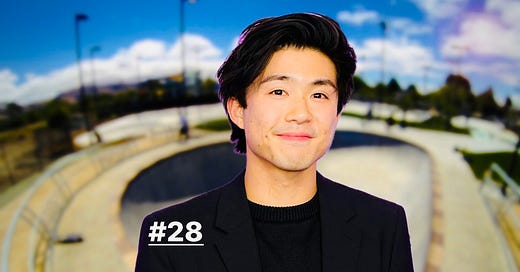



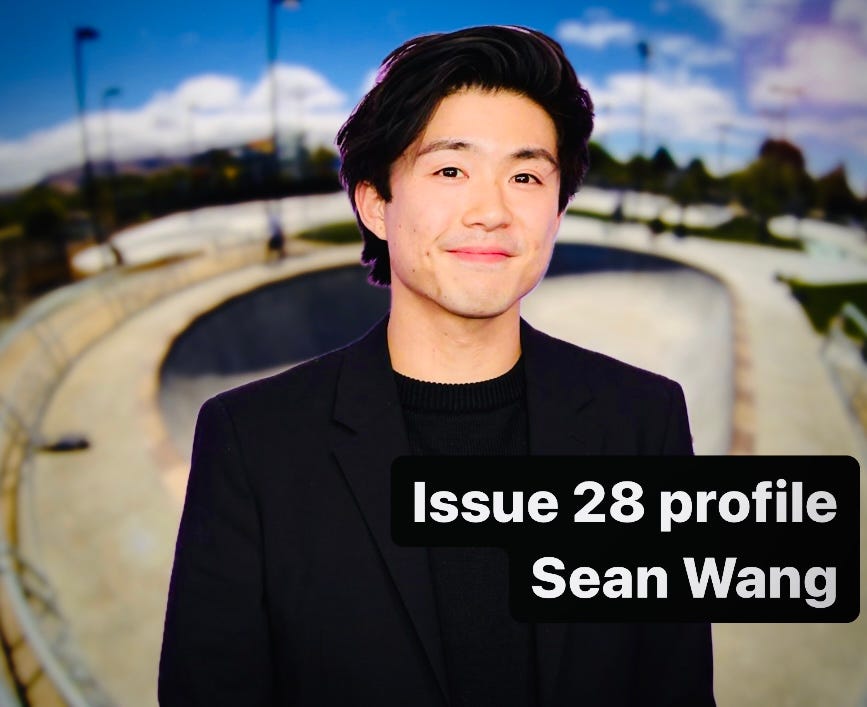
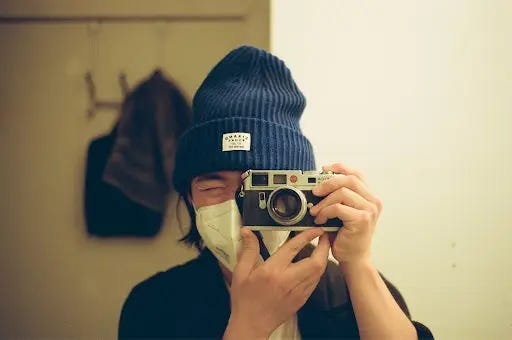


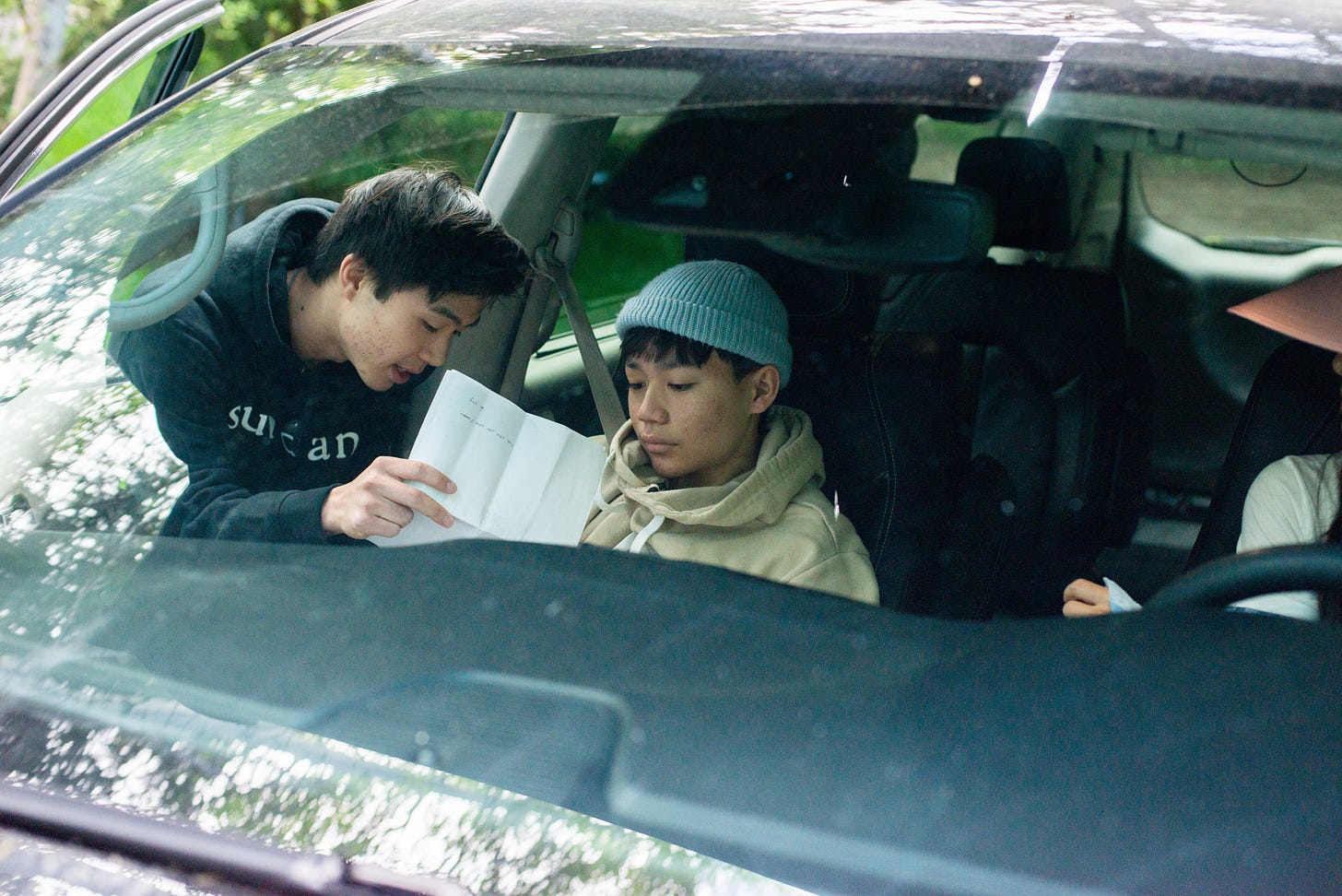

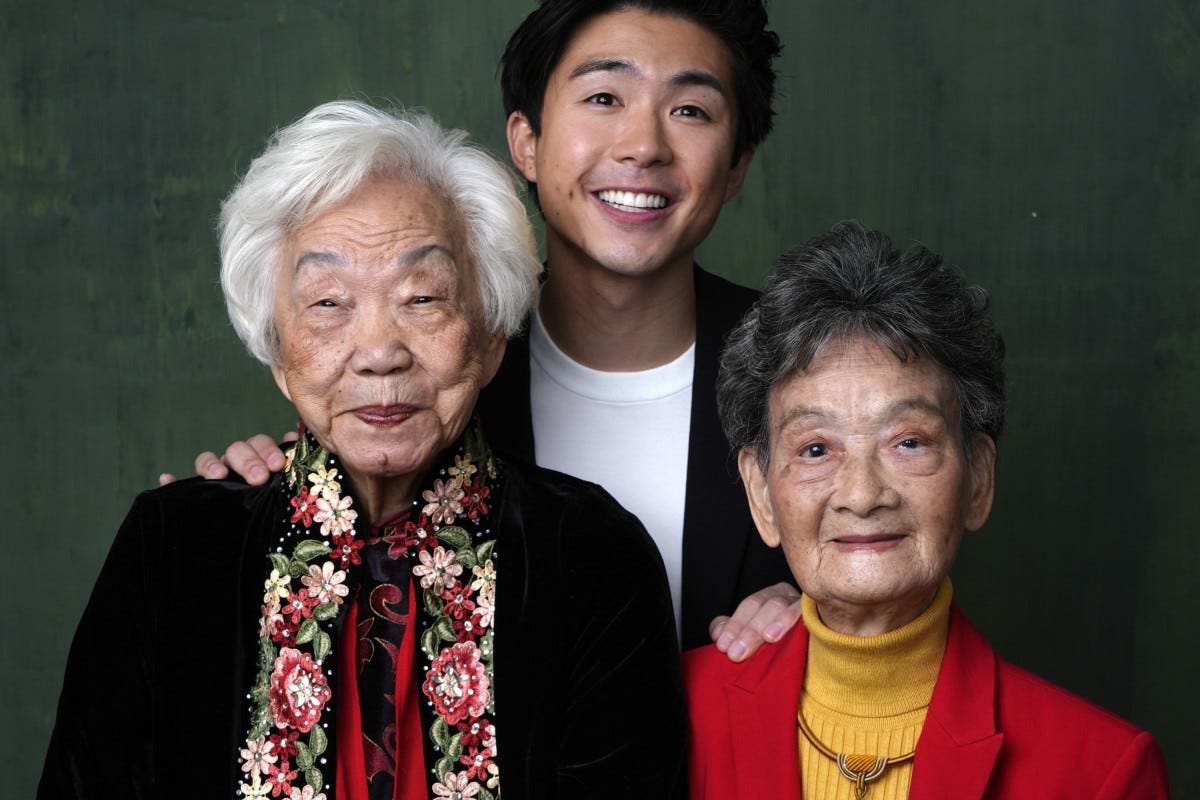


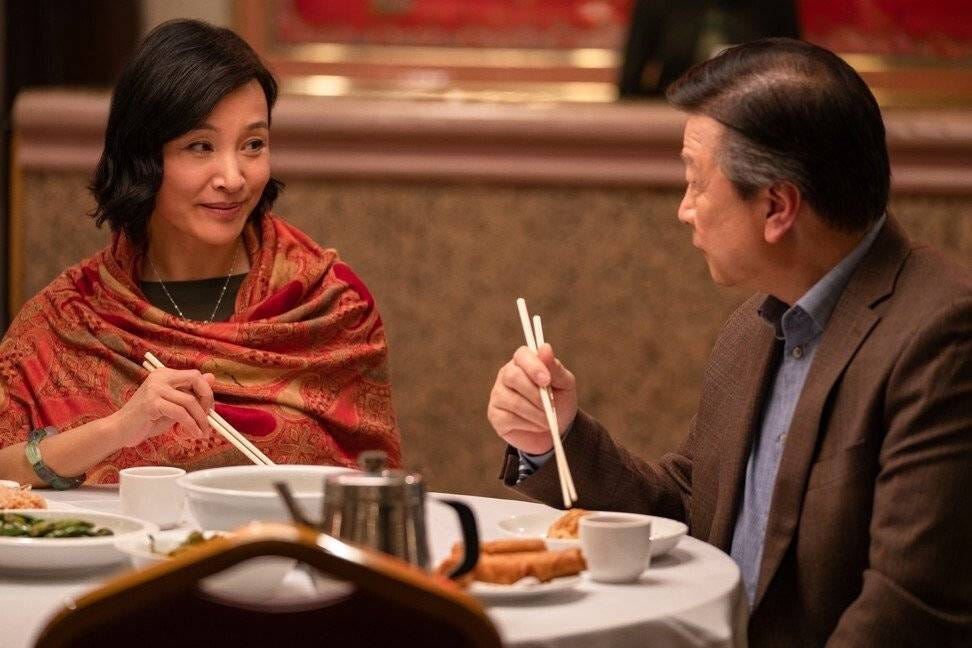
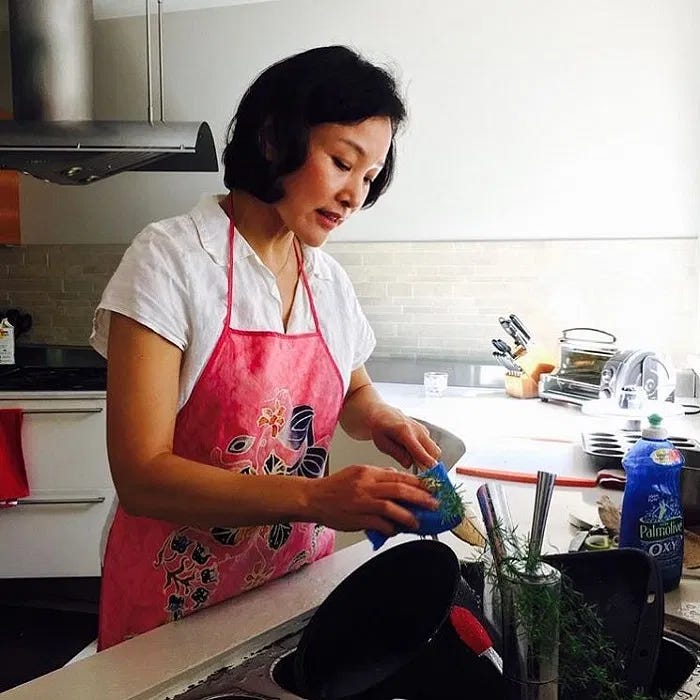
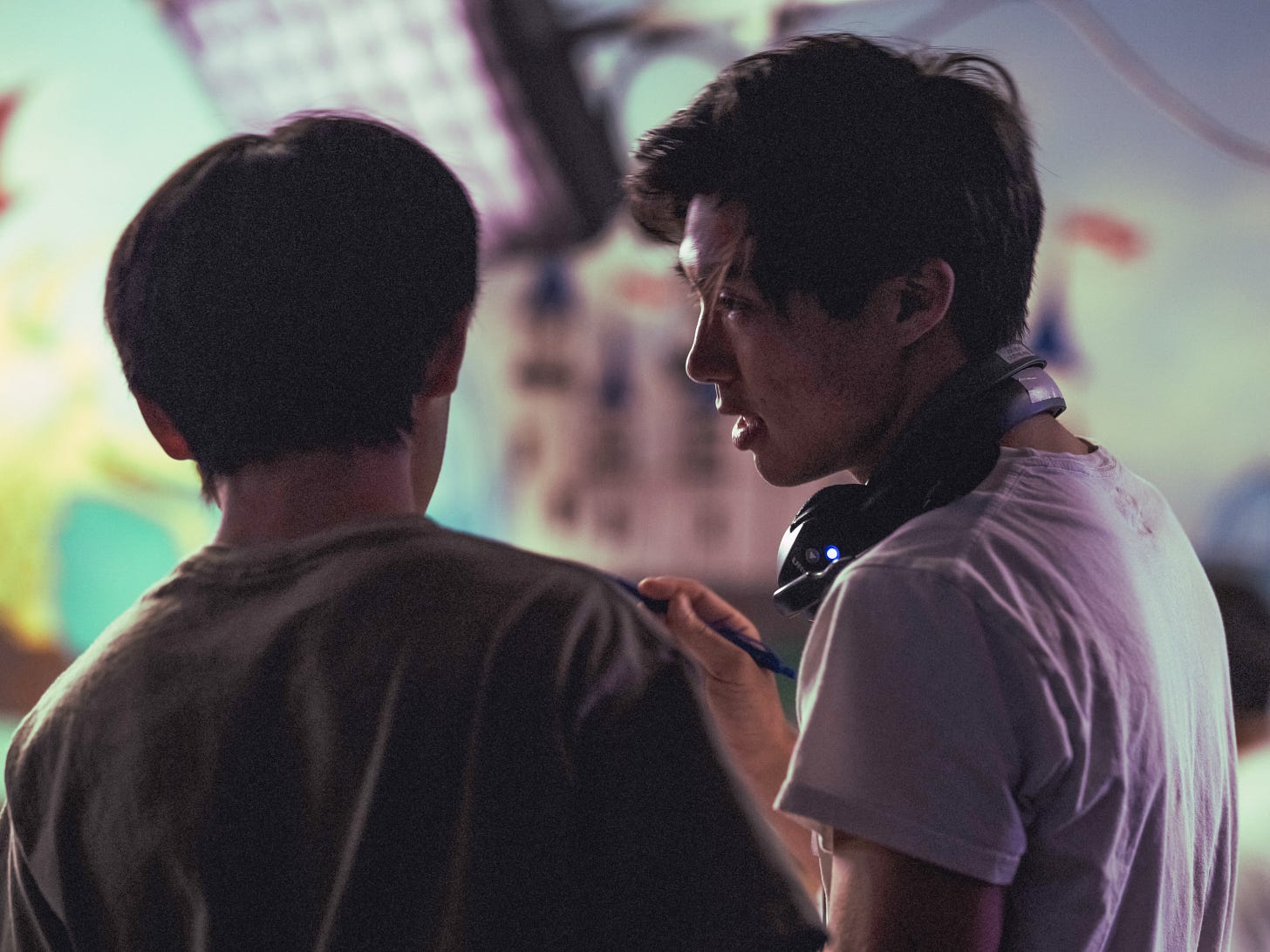

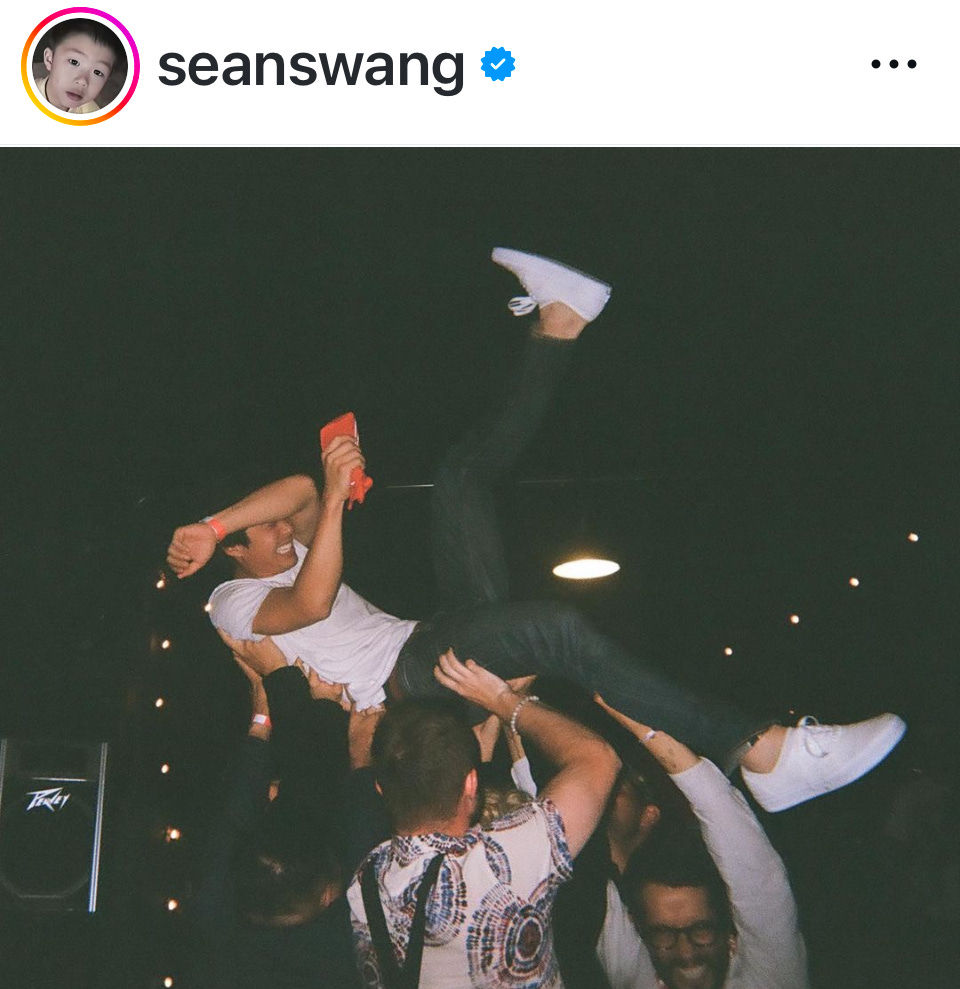
Fantastic interview! & I love the way Sean talks about recognizing the unique utility and benefit of filming in his hometown and being able to tap into support from a community that is just as invested in the project, more than the typical film industry network would be, really great reminder!!
This is great! Excited to see who else you have lined up from the festival, too.